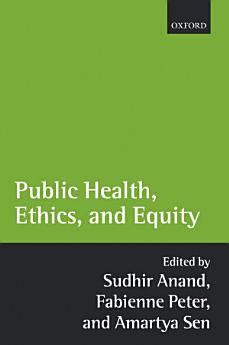Public Health, Ethics, and Equity
Sudhir Anand · Fabienne Peter · Amartya Sen
2004年12月 · OUP Oxford
電子書
330
頁數
family_home
符合資格
info
report評分和評論未經驗證 瞭解詳情
關於這本電子書
In the last fifty years, average overall health status has increased more or less in parallel with a much celebrated decline in mortality, attributed mostly to poverty reduction, sanitation, nutrition, housing, immunization, and improved medical care. It is becoming increasingly clear, however, that these achievements were not equally distributed. In most countries, while some social groups have benefited significantly, the situation of others has stagnated or may even have worsened. If health is a prerequisite to a person functioning as an agent, inequalities in health constitute inequalities in people's capability to function -- a denial of equality of opportunity. So why should a concern with health equity be singled out from the pursuit of social justice more generally? Can existing theories of justice provide an adequate account of health equity? And what ethical problems arise in evaluating health inequalities? These are some of the important questions that this book addresses in building an interdisciplinary understanding of health equity. With contributions from distinguished philosophers, anthropologists, economists, and public-health specialists, it centres on five major themes: what is health equity?; health equity and social justice; responsibilities for health; ethical issues in health evaluation; and anthropological perspectives.
關於作者
Sudhir Anand is Professor of Economics at St Catherine`s College, University of Oxford. Fabienne Peter lectures in the Department of Philosophy at the University of Warwick. Amartya Sen is Lamont University Professor at Harvard University and Fellow of Trinity College, University of Cambridge.
為這本電子書評分
請分享你的寶貴意見。
閱讀資訊
智能手機和平板電腦
手提電腦和電腦
你可以使用電腦的網絡瀏覽器聆聽在 Google Play 上購買的有聲書。
電子書閱讀器及其他裝置
如要在 Kobo 等電子墨水裝置上閱覽書籍,你需要下載檔案並傳輸到你的裝置。請按照說明中心的詳細指示,將檔案傳輸到支援的電子書閱讀器。




